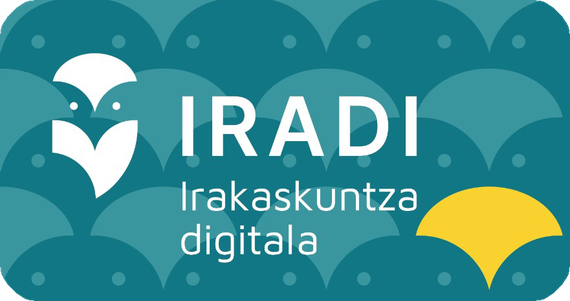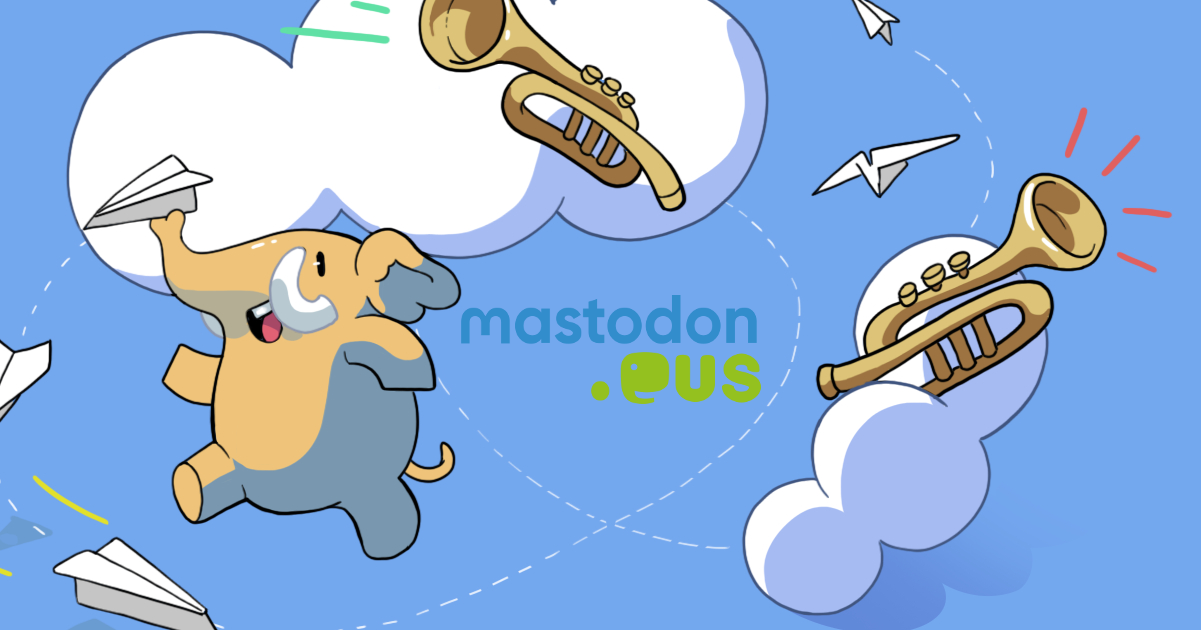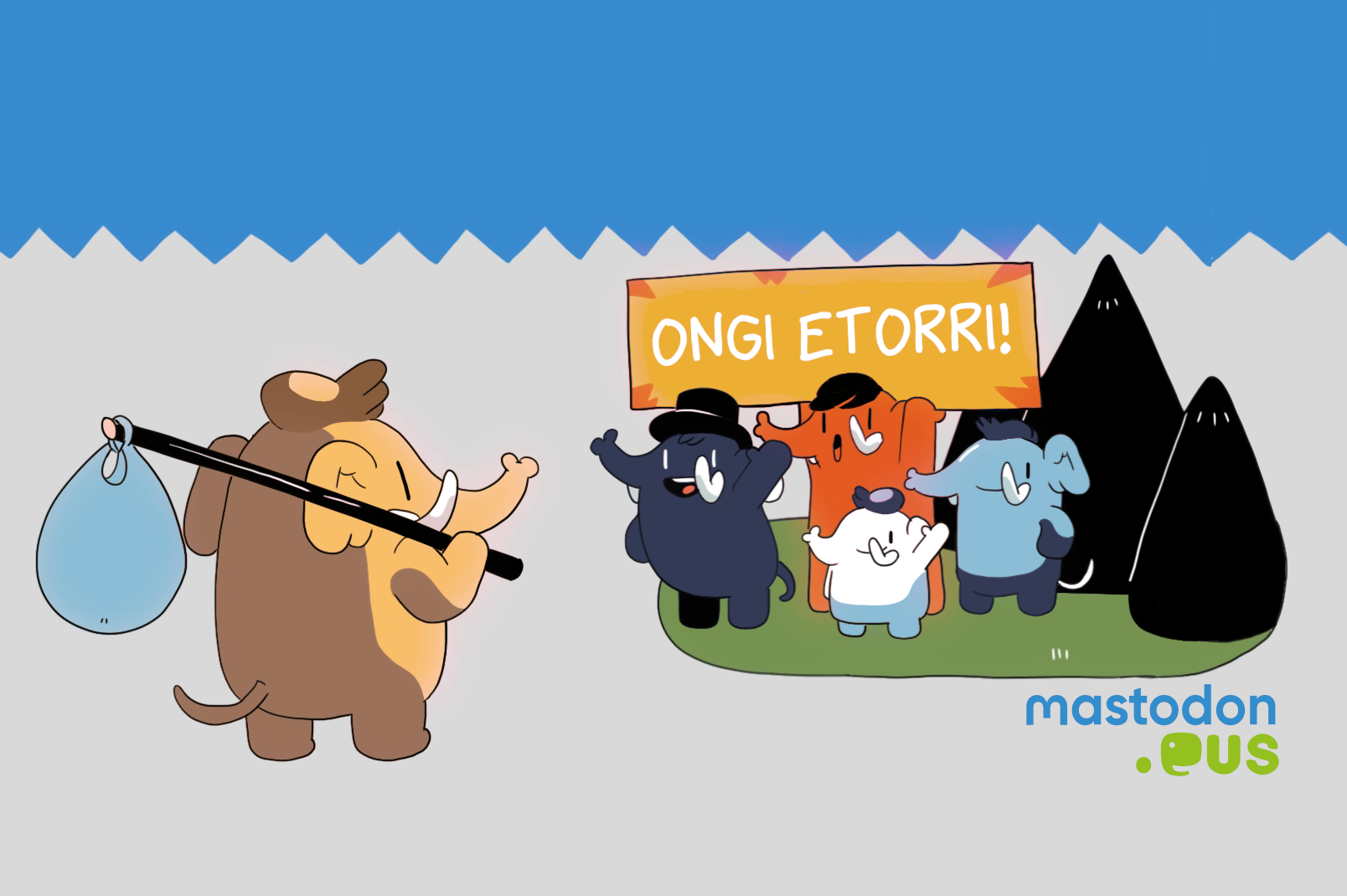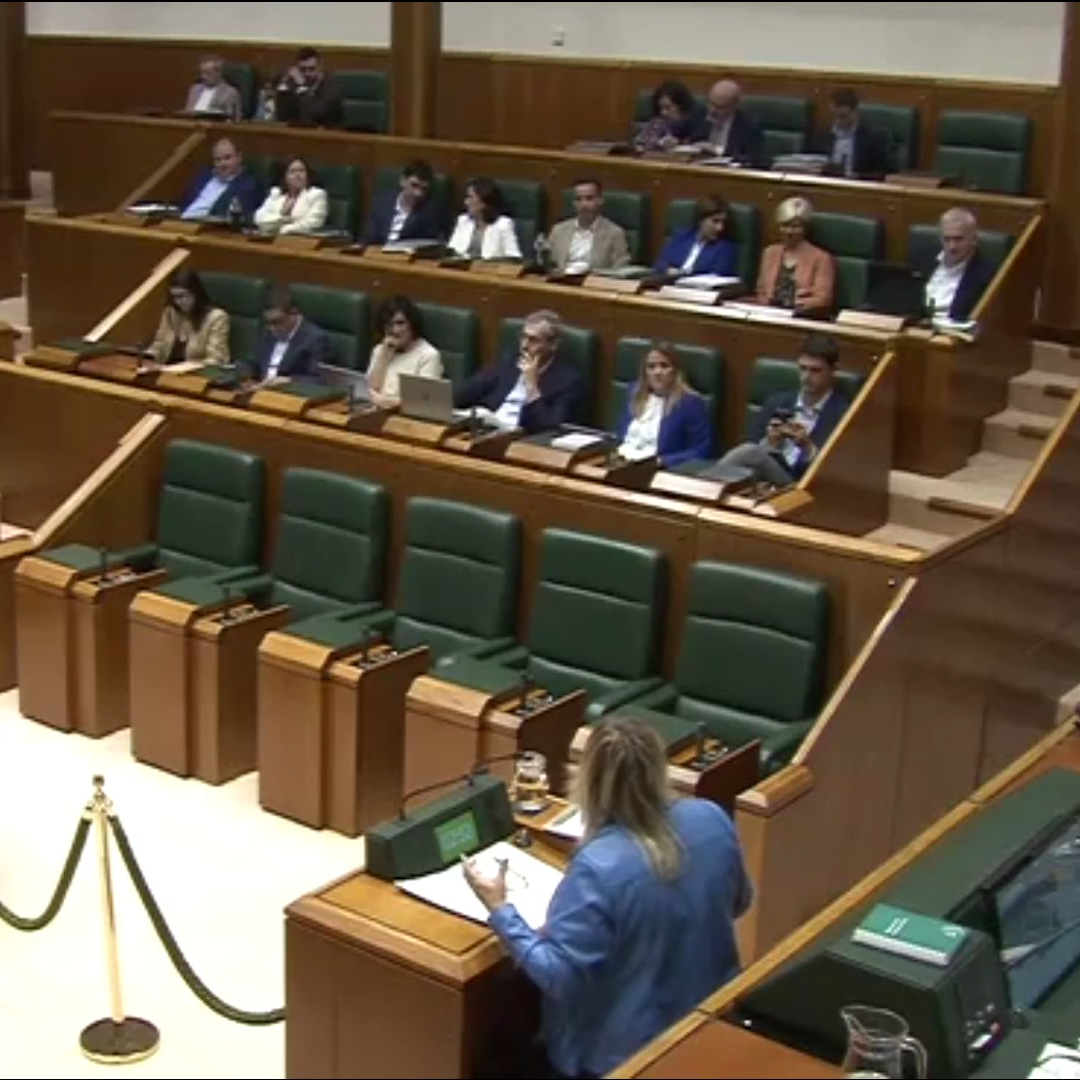How to end a decentralised network such as Fedibertsoa
- Year 2023. The entire Internet is under the control of the GAFAM empire. All? No. Because there are small peoples who resist oppression. And some of those villages start to join and form “Fedibertso.” Following the Twitter and Reddi conflicts, the Fedibertso begins to gain fame and attention. People really start using it, and the Empire realizes it.
Article written by Lionel Dricot on 23-06-2023, translated into Basque by the Abaraska group Lemmy.eus in web free forums.
Anti-competitive capitalists
As Peter Thiel, one of the top Facebook investors, said: “It’s for competitors’ losers.” Yes, those fake ones that say “the market is always right,” they don’t want a market when they’re there. They want a monopoly. Since its inception, Facebook has been very careful in killing all its competitors. The easiest way to do this is by buying companies that can become competitors. Instagram and WhatsApp, to name a few, bought them because their products attracted users and shadowed Facebook.
But the Fedibertso cannot be bought. The fediverse is an informal group of servers that discuss through a protocol (Activity Pub). These servers can also run different software (the best known is Mastodon, but they can also be Pleroma, Pixelfed, Peertube, WriteFreely, Lemmy, etc. ).
Decentralised networks cannot be purchased.
But there's another way: irrelevant twisting. That's what Google did with XMPP.
How Google Met at XMPP
By the end of the 20th century, the instant messengers were in fashion. One of the first successful ones was the ICQ, followed by MSN messenger. MSN Messenger was Tiktok of the time: teenagers could spend hours and days without adults.
As part of MSN Microsoft, Google wanted to compete and offered Google Talk in 2005 by entering the Gmail interface. Remember that at that time there were hardly any smartphones or web applications. Applications had to be installed on the computer and the Gmail web interface was innovative. Moreover, the MSN was in some way inside Microsoft Windows and it was difficult to remove it. Creating the Google chat with the Gmail web interface was a way to be closer than the software embedded in the operating system.
While Google and Microsoft were fighting for hegemony, free-software frikis were trying to build decentralized instant messaging. Like email, the XMPP was a federated protocol in which multiple servers could talk to each other through a protocol and each user connected to a given server through a client. Then, this user could communicate with any user on any server using any client. This is how Activity Pub and therefore Fedibertso work.
In 2006, Google talk became XMPP compliant. Google was taking the XMPP seriously. In 2008, when I was working, the phone rang. On the other hand, someone told me: “Hello, we are Google and we want to hire you.” I made several calls and realized that I was found through the XMPP-dev list and that they were looking for XMPP server system administrators.
So Google was actually supporting the federation. How nice? This suddenly meant that all Gmail users became XMPP users. That was certainly beneficial for the XMPP, right? I was delighted.
How Google killed the XMPP
Of course, reality wasn't that bright. First, despite contributing to the development of the XMPP standard, Google was conducting its implementation closed, which nobody could review. Because they didn't always respect the protocol they were developing. They didn't set it all. Consequently, the development of the PDPCM slowed down to adapt. The new bright features were not established or used in XMPP customers, as they were incompatible with Google Talk (avatars needed time to reach the XMPP). The federation sometimes breaks: in hours or days there was no communication between Google and normal XMPP servers. The XMPP community became vigilant and bug finder for Google servers with the publication of irregularities and downtime (I did it more than once, which probably caused the job offer).
And because there were more users in Google talk than users of "real XMPP," you couldn't "go through Google talk users." The newcomers who found the XMPP and did not use Google Talk had a frustrating experience, as most of the contacts were Google Talk users. They expected them to communicate with them easily, but it was basically a degraded version of the use of Google talk itself. The most common roster contacts list was a minority of geek and a lot of Google Talk users.
In 2013, Google found that most XMPP interactions were between Google Talk users. They had no interest in respecting a protocol that did not control 100 percent. So they disconnected and announced that they would not federate. And he started a long way to create a messenger, starting with Hangout (then Allo, Duo… from there I lost my account).
Unsurprisingly, none of Google's users made any chint. The truth is, nobody noticed. No contact was disconnected. That was it. But for XMPP it was as if most users suddenly disappeared. Even XMPP fans, like myself, had to create Google accounts to relate to friends. Remember we were disconnected for them. It was our fault.
Although the XMPP still exists and is a very active community, it never recovered from that blow. The excessive expectations with Google’s acceptance led to great despair and silent forgetfulness. The XMPP became a niche. So much so, when group chats became fashionable (Slack, Discord), the free software community reinvented (Matrix) to compete, although group chats were possible with XMPP. (Excuse: I've never studied the Matrix protocol, so I haven't technically compared it to XMPP. I simply think it solves the same problem and competes in the same space as the XMPP).
Would the XMPP be different if it had never been linked to Google or if it had never been considered part of it? That cannot be said. But I'm sure it would grow slower and maybe healthier. It would be bigger and more important than it is today. That the default communication platform would be decentralized. One thing is certain: If Google had not gathered, the XMPP would not have been worse than the present one.
It wasn't the first one. Microsoft Script
What Google did with XMPP was not new. In fact, in 1998, Microsoft’s engineer Vinod Valloplil wrote a text entitled “Blunting OSS attacks”, in which he explicitly suggested “de-commodification of protocols and applications […] By expanding and developing new protocols, we can prevent the entry into the market of free software projects.”
Microsoft put this theory into practice with the implementation of Windows 2000, compatible with the Kerberos security protocol. But this protocol was extended. The specifications of these extensions could be freely downloaded, but a licence prohibiting their implementation had to be approved. As soon as you hit the “OK” button, you couldn’t work on any of the open source versions of Kerveros. The explicit objective was to end any competing network project such as Samba.
This anecdote was reported by Glyn Moody in his book “Rebel Code” and shows that killing open-source and decentralized projects is a really conscious goal. It never happens randomly and it's never bad luck.
Microsoft used a similar tactic with its Microsoft Office to master the office market with proprietary formats (file formats can also be seen as data exchange protocols). When existing possibilities (OpenOffice and then LibreOffice) improved as much as to open doc/xls/ppt formats, Microsoft launched a new format, which it called “open and standardized”. The format itself was very complex (20,000 specification sheets!) And most importantly, the wrong thing. Yes, some specification errors were introduced, which meant that the software that established the full OOXML format would not act like Microsoft Office.
These errors, along with political pressure, interrupted the process of switching to Linux from the city of Munich. So, yes, the strategy works well. That's why they are today docx, xlsx and pptx. Source: I was there, cross-paying the cities of Munich, giving me LibreOffice OOXML to make it closer to Microsoft, rather than following specifications.
UPDATE: This tactic also has a page on Wikipedia
Goal and Fediverso
Anyone who does not know the story is doomed to repeat it. That same is happening with Meta and Fedibertso.
According to some rumours, the Goal could be “compatible with the Fedibertso.” From your Mastodon account you could follow Instagram people.
I don't know if those rumors have anything real, if it's also possible for METAk to raise it. But my experience with XMPP and OOXML taught me one thing. If the Goal joins the Fedibertso, the only winner is Meta. Because the reactions show that they're already winning: The fediverse is divided into two parts: Target locking or not. If this happens, this means that the Fedibertso will be fragmented, frustrating and two-tier, and unattractive to newcomers.
(UPDATE: These rumours have been confirmed, as at least one Mastodon administrator fosstodon.org kev of the instance has been invited by Meta to participate in an unofficial meeting. He had the best possible reaction: he rejected it politely and most importantly, he published the email to be transparent with his users. Thank you kev! ).
I know we all dream of having all our friends and family in Fedibertoa to completely avoid ownership networks. But Fediverso does not seek to dominate the market and profit. The fediverse is not looking for growth. It offers a space for freedom. The people who meet in the Fedibertso are people seeking freedom. If people aren't willing or don't seek freedom, it's OK. They have the right to be on proprietary platforms. We must not force them into the Fedibertso. We should not try to get all the people we can at any price. We have to be honest and ensure that people stick to the Fedibertso because they share values.
With an absurd ideology to grow at all costs, competing against MET, we will surely lose it. They are the masters of this game. They want to draw everyone into their field, pushing them to compete against them, with the weapons they sell.
The fediverse can only win by maintaining its space, speaking of freedom, morality, ethics, values. Generating open, non-commercial and unsupervised debates. Recognizing that the goal is not to win. Unyielding. The goal is to remain a tool. An instrument that offers space for freedom to connected human beings. Something that no merchant will ever offer.
EAJk, EH Bilduk eta PSE-EEk ekimen bat adostu dute Eusko Legebiltzarrean Hezkuntza Sailari eskatzeko Iradi software libreko hezkuntza plataforma hedatzen jarraitzeko. Zenbait ikastetxetan ezarri da Iradi orain arte. Baliabide partekatuak, komunikazio zerbitzuak (e-posta eta... [+]
Euskal Herriko bi muturretatik datoz Itziar (Bilbo, 1982) eta Ekaitz (Erriberri, 2002), sortzen ari den Burujabetzaren Aldeko Mugimenduaren berri ematera. Euskal Herrian diren burujabetza prozesu ugariak arloz arlo bultzatu eta indartu nahi ditu BAMek. Lan horretan hasteko,... [+]
I've done a quick analysis of the technology forecasts for 2025. Like every year, when you talk about what technology is going to bring to the media in 2025, the discourse is very similar. Many of us who write about technology have the anxiety of knowing more than it's going to... [+]
The evolution that the Internet has taken over the last 15 years, together with its technological and business model, makes us think that it is a tool to increase the worst aspects of humanity. Around the world, agents have been created that are not satisfied with this idea... [+]





















